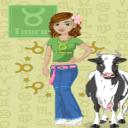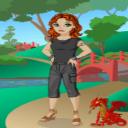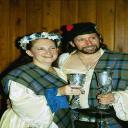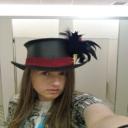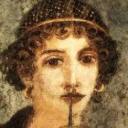Yahoo Answers is shutting down on May 4th, 2021 (Eastern Time) and beginning April 20th, 2021 (Eastern Time) the Yahoo Answers website will be in read-only mode. There will be no changes to other Yahoo properties or services, or your Yahoo account. You can find more information about the Yahoo Answers shutdown and how to download your data on this help page.
Trending News
Can someone please explain Wiccans and Pagans to me?
What is the difference? Do they do witchcraft? I don't want to offensive to anyone but are they evil? I'm have heard a few people say they are Wiccan and don't really know what that means. I was thinking of having a character in my book be a Wiccan or a witch but I want to write them correctly. Do they cast spells? Please explain them to me. Thanks, sorry if I offended anyone.
10 Answers
- Child of VenusLv 61 decade agoFavorite Answer
Paganism is an umbrella term that covers many religions. I define it as any religion that is either a reconstruction of an ancient pre-Christian religion of the European and Mediterranean area, any earth-based religion, or a combination of the two. Wicca definitely falls under that category as it is an earth-based religion with some practices from pre-Christian Europe as well as other parts of the world. So, Wicca is a Pagan religion, but so are religions like Kemetic Paganism, Asatru, Hellenismos, Druidry, etc. So all Wiccans are Pagan, but not all Pagans are Wiccans. It's like the relationship between Catholicism and Christianity.
Witchcraft is a magical practice that can be practiced with any of the above religions, any religion not included, or no religion at all. It's more common for a witch to practice a Pagan religion than anything else, but not all witches are Pagan, and certainly not all Pagans are witches.
No, we are not evil. Wicca is a very peaceful religion about honoring the Father God and Mother Goddess. We respect all nature and consider ourselves, as humans, to be the stewards of the Earth entrusted to take care of her and protect her since we have greater consciousness than her other creatures. We celebrate the changing of the seasons with our holidays, and we follow the Wiccan Rede which reads "An it harm none, do what ye will" which allows us to do anything that causes no harm and suggests that we keep the amount of harm we do in mind at all times, but leaves us to decide when harm is necessary (for instance, we need to kill something to eat whether it's an animal or a plant).
Don't mention any of the Pagan religions if you are going to use fantasy magic (ie Harry Potter or Charmed magic), we get enough Fluffies trying to convert to Paganism because they think it'll give them special powers from the fictional media that's already out there about us. They make our serious religion look about as silly as little girls running around on brooms pretending they can fly, and intelligent but ignorant people laugh at us. Go ahead and say your character is a witch since the word witch can mean either a fantasy witch or a real one. However, it seems that because your asking this question, you realize that you should know what you're talking about before you start writing about a religious group. Since there's too much info on Wicca for me to write here, go to http://wicca.timerift.net/ . It's a very good site if you're looking for the basics of Wicca. I think if you go there, you should be able to do us justice. Good luck with your book.
Venus Bless
Source(s): Solitary Eclectic Wiccan witch and fellow aspiring author. - KCLv 71 decade ago
You've got some great answers here. I just want to confirm that pagan is a general term for someone not of the big 3 religions, and Wicca is one such path, the best known but not the only by any means. Pagans are not an organized group and belief varies widely by individual, but they have some things in common, like a reverence for nature and a sense of not wanting to cause harm.
Witchcraft is a practice often taken up by Wiccans and other pagans but is not a requirement. It's usually an effort to influence the subtle forces of the universe. It's often a lot like meditation. I think the best, most effective spells are the ones you cast on yourself; they help with perspective and working through difficult feelings.
If you want a character in a book to be Wiccan or a witch then you need to get to know some personally, ask a lot of questions and understand how they see things. And personally I always recommend the 'Witches' and/or Tiffany Aching series by Terry Pratchett, since although his witches occasionally use a type of magic that we don't have in our world, he's spot-on about the heart and soul of witchery. The Wee Free Men is a good book to start with.
- twoasonesflLv 51 decade ago
Simply put, all Wiccans are pagan, but not all Pagans are Wiccan, as others have said.
In terms that are easier to understand, all Catholics are Christians, but all of Christianity encompasses more than just Catholics. One can be Catholic, Presbyterian, Baptist, Episcopalian, Jahovah's Witness, Lutheran, etc. and still be Christian.
In Paganism, as an Earth-based set of different religions, all Wiccans practice witchcraft, but some Pagans ALSO practice Witchcraft while other Pagan paths do not. What you have to find out is if that particular Pagan path is one that practices Witchcraft, herbalism, Magical craft (such as the craft of making magical/imbued tools, talismans, etc.), or any combination of a wide variety of Pagan practices and "occult" magics, including what Wiccans do.
There is so much that you should study to be able to portray any of the many Pagan paths out there, that you may want to start your research on Witchvox.com, where there are a lot of different paths represented there. There are also the books by Raymond Buckland, Gerald Gardner, Patricia Crowther (both writers of Craft fiction and fact), Janet and Stewart Ferrar, Philip Heselton, Eileen Smith, Jon Hanna and many other quality authors. But remember that there are a lot of hack authors that just write Pagan fluff, with little or no craft value to their work.
Ignore authors like Ed Hubbard (author of "Witch Wars" - a manual for inter-craft espionage to destroy oathbound Craft), the founder of the "Correllian" cult and who's work is nothing more than a bad attempt to bash traditional oathbound practices and paths. He wants to destroy all oathbound practices because he, himself, is a dishonest and irresponsible person.
Good luck with your further research.
Source(s): Gardnerian Wiccan, 1st* Initiated BTW Witch. - Ma'iinganLv 71 decade ago
Wiccans practice the religion of Wicca. It's main focus is on the Goddess and God, observation of seasonal "holidays", striving towards balance and adherence to their ethical tenant which states "An it harm none, do as thou will" (not "Harm None"). Spell work is not a sole focus of Wicca, but is in Witchcraft. Many Wiccans choose to incorporate Witchcraft into their practices, but not all Wiccans do. Wiccans are not Witches. Wiccans who incorporate Witchcraft into their practices are appropriately called "Wiccan Witches". Witches may be a part of any religious or spiritual belief system, or none at all. Witchcraft is a practice and therefore has no need of any deities or religious dogma in order to practice.
All Wiccans (and generally all Witches) are Pagan, but not all Pagans are Witches/Wiccan. Paganism is an umbrella term encompassing a number of religions and spiritual belief systems.
Source(s): Non-Wiccan Witch - How do you think about the answers? You can sign in to vote the answer.
- Scarlet MacBluLv 71 decade ago
Pagan: a hard-to-define word that refers to a large category of religions, often defined as non-abrahamic, but sometimes defined as polytheistic or based on pre-Christian European religions. Often pagans see themselves as following "nature-based" religions and generally are drawn to ancestral traditions. There are many types of pagans including Wiccans, druids, heathens, thelemites and kemetics.
Wiccan: Someone who practices Wicca, a very specific pagan religion that revolves around a God/Goddess duality and celebrates eight seasonal holidays and various lunar events, especially full moons.
Witches: Someone who practices witchcraft, which can be defined as any number of folk magick or ceremonial magick traditions and methods. Witchcraft is not a religion and is a craft that can be utilized by anyone of any faith, though many faiths have their own brand of witchcraft that can be used as companions to the faith.
All Wiccans are pagan. Most Wiccans are also witches (there is a form of witchcraft that is specific to the religion of Wicca, leading to some confusion between the term "Wiccan" and "Witch." Truth is, the core of Wicca is a religion... the form of witchcraft they use is secondary to the religion and is sometimes seen as a form of ritualized prayer. Sometimes people interchange the word "Wicca" and "Witchcraft" so beware of this in your research.) Not all pagans are Wiccans, not all pagans are witches and not all witches are Wiccan or even pagan.
Most pagans do not believe in evil or the devil and so by their very nature, pagans cannot be evil. Only those who believe in evil (usually Christians) try to define pagans as evil and this is only because they view anyone who is not Christian as "evil" (that means that muslims, jews, buddhists etc would all also qualify as "evil" by that definition). Witches do cast spells. Spells can come in many shapes and forms and for many purposes. The most popular spells modern witches cast are usually for protection, health, money/jobs and sometimes to aid relationships.
If you want to depict a Wiccan character accurately in your book, you're going to have to do some research into Wicca and meet some real live Wiccans. Start out by reading up on Wicca by picking up a book or two on it (Scott Cunningham's "Wicca for the solitary practitioner" is a good one). Then try meeting some Wiccans online in chat forums like Facebook or Paganspace.net. These people you've met that say they are Wiccan? Talk to them, meet with them, ask them questions about how they see themselves, what motives them, how they practice and how they worship. If you can' talk to them, consider inviting a Wiccan that you've met online for an interview over coffee. Try Witchvox.com to find people in your area that might help.
Hopefully by doing this you can avoid falling into the trap many writers fall into nowadays of writing a flat, stereotyped Wiccan or witch character that has no depth and lends nothing substantial to the story.
Best of luck,
-Scarlet
Source(s): eclectic pagan witch with Wiccan friends - Ashley MLv 71 decade ago
pagan is a blanket term that encompasses a number of earth based religion.
a wiccan is a pagan, but a pagan isnt always a wiccan.
you dont HAVE to practice witchcraft to be any type of pagan. you dont have to practice witchcraft to be wiccan.
there really is SOOOOOOOOOOOOO much more to all this. i am not sure of the best way to explain all of it, so hopefully a few people more knowledgeable than me will turn up and take a peek at this question.
i know the basics and i hope i helped even a little bit
- 5 years ago
There is nothing wrong with keeping someone in your heart and there is certainly nothing wrong with immersing that person in your love. Your prayer (believe it or not, it is a prayer) is what many Christians call a prayer of intercession and so your prayer is worthy of respect and admiration, particularly on the part of Christians. Having said that, do not be surprised if some Christians are not very enthused by your prayers because Christians address their prayers to God the Father (a Person of the Holy Trinity) but you do not (at least not explicitly) and for Christians this is rather important ; some Christians might even be tempted to see a form of para-satanism in you pantheistic way to relate to God because to them offering a prayer to a god that is confined in the created universe is idolatry and the ultimate object of idolatry is satan. On the other hand, Christians do acknowledge that creation bears the mark of the Creator and that it is possible to discover much about God by a meditative appreciation of what He has created ; and so there is a common ground here that should be used as mean to share spiritual wealth rather than discourage mutual good will.
- LabGrrlLv 71 decade ago
Paganism is a set of religions encompassing hundreds of religions, of which Wicca is ONE.
Wicca is a religion, until *very* recently, no one linked practicing Wicca with the phrase "casting spells," and the idea that we do so is stupid and when used in fiction books, usually done in an offensive way.
There is an etymological connection between the words Wicca and Witch, but there is no connection between Wicca and the spell-casting kind of mythological witch.
Most authors who are non-Wiccan who include characters they call Wiccan in their works are just using the word Wicca because they think that it means exactly the same as Witch... it does not.
Call your character a WITCH, because no religion owns that word.
Source(s): Wiccan for over 20 years, a scientist by trade, and NOT a "spell-caster." - froufrouLv 71 decade ago
all wiccans are pagans
but
not all pagans are wiccans
as mai has said
what this means is
wiccans are pagans because their religion and beleifs are of pagan origon and focus
but
pagans dont have to be wiccans to be pagan, as its just one of many possiblites
wicca is a modern version(branch) of paganism
yes they do 'witchcraft' as far as i know, but its not a focus just part of it
no they are not evil, pagans are not evil
they are usualyl the least evil peopel you will meet (i say that as a biased pagan tho ;-D )
no need to be sorry, not offensive at all, just a question, your entitled to ask it


